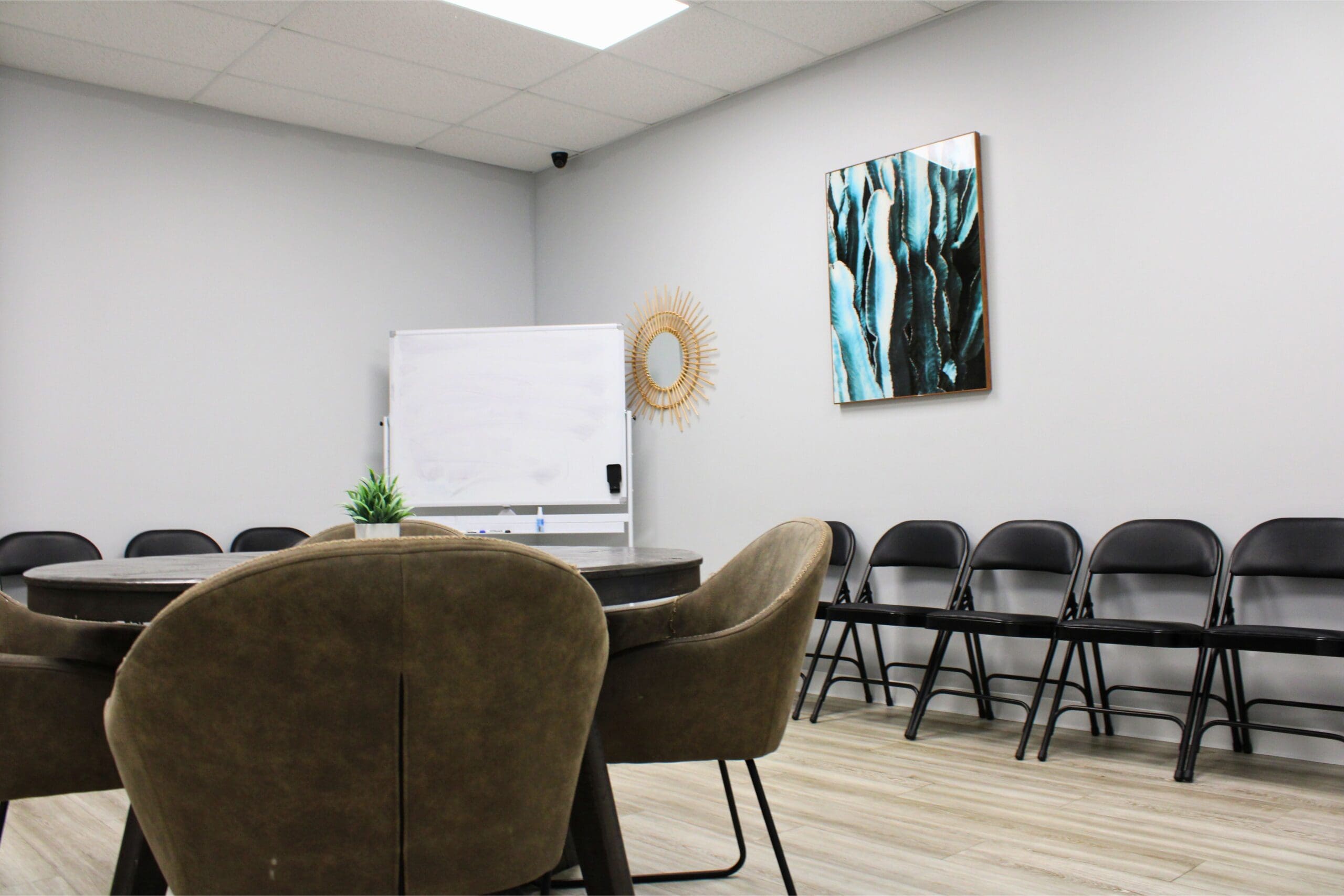Drug counseling plays a pivotal role in helping individuals recover from substance abuse and regain control over their lives. In New Jersey, the demand for skilled drug counselors is on the rise, driven by an increase in awareness and the need for comprehensive mental health services. Understanding the landscape of drug counseling in NJ is the first step toward making a meaningful impact in this field.
As a drug counselor in New Jersey, you will have the opportunity to work with diverse populations, offering support and guidance to those battling addiction. Your role will encompass providing individualized treatment plans, facilitating group therapy sessions, and collaborating with other healthcare professionals to ensure holistic care for your clients.
Embarking on this career path requires a blend of empathy, dedication, and specialized knowledge. Recognizing the complexities of addiction and the factors that contribute to substance abuse is crucial. Moreover, staying informed about the latest treatment methodologies and maintaining a compassionate approach will be key to your success as a drug counselor.
Mental Health Matters – Make it a Priority! If you or a loved one are ready to begin regaining autonomy over your health and well-being, know that we’re here for you. Let us guide you through your recovery journey and enable you to lead the happy, healthy, and fulfilling life you deserve. Contact us for Mental Health Services in New Jersey.
Educational Requirements for Drug Counselors

Becoming a drug counselor in New Jersey requires a solid educational foundation. The journey typically begins with obtaining a bachelor’s degree in a related field such as psychology, social work, or counseling. This degree provides you with essential knowledge about human behavior, mental health disorders, and therapeutic techniques.
While a bachelor’s degree is the minimum requirement, many employers prefer candidates with a master’s degree in counseling or a related discipline. A master’s program offers advanced coursework in substance abuse treatment, counseling theories, and clinical practice, better preparing you for the complexities of the job.
In addition to formal education, aspiring drug counselors must complete supervised clinical experience. This hands-on training is crucial as it allows you to apply theoretical knowledge in real-world settings under the guidance of experienced professionals. Clinical experience also helps you develop practical skills in client assessment, treatment planning, and intervention strategies.
It’s also beneficial to engage in continuing education and professional development opportunities. Attending workshops, seminars, and conferences can keep you updated on the latest research and best practices in the field of addiction counseling.
Overall, meeting the educational requirements is a critical step in preparing for a rewarding career as a drug counselor. It equips you with the knowledge and skills necessary to effectively support individuals on their path to recovery.
Certification Process for NJ Drug Counselors

Once you have completed the necessary educational requirements, the next step to becoming a drug counselor in New Jersey is obtaining certification. The state of New Jersey mandates that aspiring drug counselors obtain a certification as a Licensed Clinical Alcohol and Drug Counselor (LCADC) or a Certified Alcohol and Drug Counselor (CADC).
The certification process involves several key steps:
- Complete Required Training: You must complete a specific number of training hours in various domains such as assessment, counseling, case management, and client education. This training ensures that you are well-versed in all aspects of drug counseling.
- Supervised Work Experience: In addition to your education, you are required to complete supervised work experience. For LCADC certification, this involves 3,000 supervised hours, while CADC certification requires 2,000 hours. This hands-on experience is critical for honing your practical skills.
- Pass the Certification Exam: After completing your training and supervised experience, you must pass a comprehensive certification exam. This exam tests your knowledge and competency in addiction counseling and ensures you are prepared to handle the responsibilities of the role.
- Background Check: A thorough background check is conducted to ensure that you meet the ethical and legal standards required for certification.
Once you have successfully navigated through these steps, you will be awarded your certification, allowing you to practice as a drug counselor in New Jersey. Maintaining your certification requires continuous education to stay current with evolving practices and standards in the field.
Certification not only validates your expertise but also enhances your credibility and career prospects in the highly specialized field of addiction counseling.
Gaining Practical Experience in Drug Counseling

Gaining practical experience is a crucial step in your journey to becoming a drug counselor in New Jersey. This hands-on experience allows you to apply theoretical knowledge in real-world settings, enhancing your skills and competence.
There are several ways to gain practical experience:
- Internships and Practicums: Many educational programs in substance abuse counseling require students to complete internships or practicums. These placements provide direct experience under the supervision of experienced professionals, enabling you to learn the nuances of the job.
- Volunteering: Volunteering at rehabilitation centers, community health organizations, or support groups can offer valuable experience. This not only helps you build your resume but also allows you to make a meaningful impact in the community.
- Entry-Level Positions: Working in entry-level positions such as a behavioral health technician or a case manager assistant can provide practical exposure to the field. These roles often involve assisting with patient care, conducting assessments, and supporting counseling sessions.
- Networking: Building a professional network can open doors to mentorship and job opportunities. Attend industry conferences, join professional associations, and connect with experienced counselors to gain insights and advice.
During your practical experience, focus on developing key skills such as active listening, empathy, communication, and problem-solving. These skills are essential for effective drug counseling and will serve you well throughout your career.
Additionally, seek feedback from supervisors and peers to identify areas for improvement and continuously strive for professional growth. Remember, the experience you gain in these early stages will be foundational to your success as a drug counselor.
Employment Opportunities and Career Growth

Once you have gained the necessary education and practical experience, you will find that there are a variety of employment opportunities and paths for career growth as a drug counselor in New Jersey. The demand for substance abuse counselors is growing, driven by increasing awareness and the ongoing need for effective addiction treatment.
Potential employment settings include:
- Rehabilitation Centers: These facilities offer structured environments for individuals recovering from addiction. Drug counselors in rehab centers provide individual and group therapy, develop treatment plans, and support clients through their recovery journey.
- Hospitals and Clinics: Medical settings often have departments focused on mental health and substance abuse. Counselors in these environments work alongside healthcare professionals to offer comprehensive care.
- Community Health Organizations: Non-profit organizations and government agencies frequently employ drug counselors to support community-based initiatives aimed at reducing substance abuse and promoting mental health.
- Private Practice: With sufficient experience and certification, some counselors choose to open their own practices, offering personalized services to clients. This path offers greater autonomy and the ability to specialize in certain types of addiction or therapeutic approaches.
Career growth for drug counselors can take many forms. As you gain experience, you may pursue advanced certifications, such as becoming a Licensed Clinical Alcohol and Drug Counselor (LCADC). This credential allows you to take on supervisory roles, lead programs, and even train new counselors.
Additionally, many drug counselors advance their careers by specializing in areas like adolescent counseling, dual diagnosis treatment, or family therapy. Continuing education is crucial for staying current with the latest research and best practices in the field.
The journey of a drug counselor is both challenging and rewarding, offering numerous opportunities to make a significant impact on individuals and communities. With dedication and continuous professional development, you can achieve a fulfilling and impactful career in this essential field.
Continuing Education and Professional Development
In the dynamic field of drug counseling, continuing education and professional development are vital for maintaining competence and staying updated with the latest advancements. As a drug counselor in New Jersey, it’s essential to engage in ongoing learning to enhance your skills and provide the best possible care for your clients.
There are several avenues for continuing education:
- Workshops and Seminars: These events provide opportunities to learn about new therapies, treatments, and research findings. They are also excellent for networking with other professionals in the field.
- Online Courses: Many institutions offer online programs that allow you to study at your own pace. These courses can cover a wide range of topics, from specific counseling techniques to broader issues in mental health and addiction.
- Professional Conferences: Attending annual conferences hosted by organizations such as the American Counseling Association (ACA) or the National Association for Alcoholism and Drug Abuse Counselors (NAADAC) can be extremely beneficial. These events offer a wealth of knowledge and the chance to hear from leading experts in the field.
- Advanced Degrees: Pursuing a master’s or doctoral degree can open doors to higher-level positions and specialized roles. Advanced education can also provide deeper insights into the complexities of addiction and mental health.
- Certification Programs: Additional certifications, such as the Licensed Clinical Alcohol and Drug Counselor (LCADC) or Certified Clinical Supervisor (CCS), can enhance your credentials and qualify you for more advanced roles.
Professional development also includes supervision and mentorship. Regular supervision sessions with experienced counselors can provide guidance, support, and feedback on your practice. Mentorship programs can help you navigate the challenges of your career and offer valuable insights from seasoned professionals.
Mental Health Matters – Make it a Priority! If you or a loved one are ready to begin regaining autonomy over your health and well-being, know that we’re here for you. Let us guide you through your recovery journey and enable you to lead the happy, healthy, and fulfilling life you deserve. Contact us for Mental Health Services in New Jersey.















